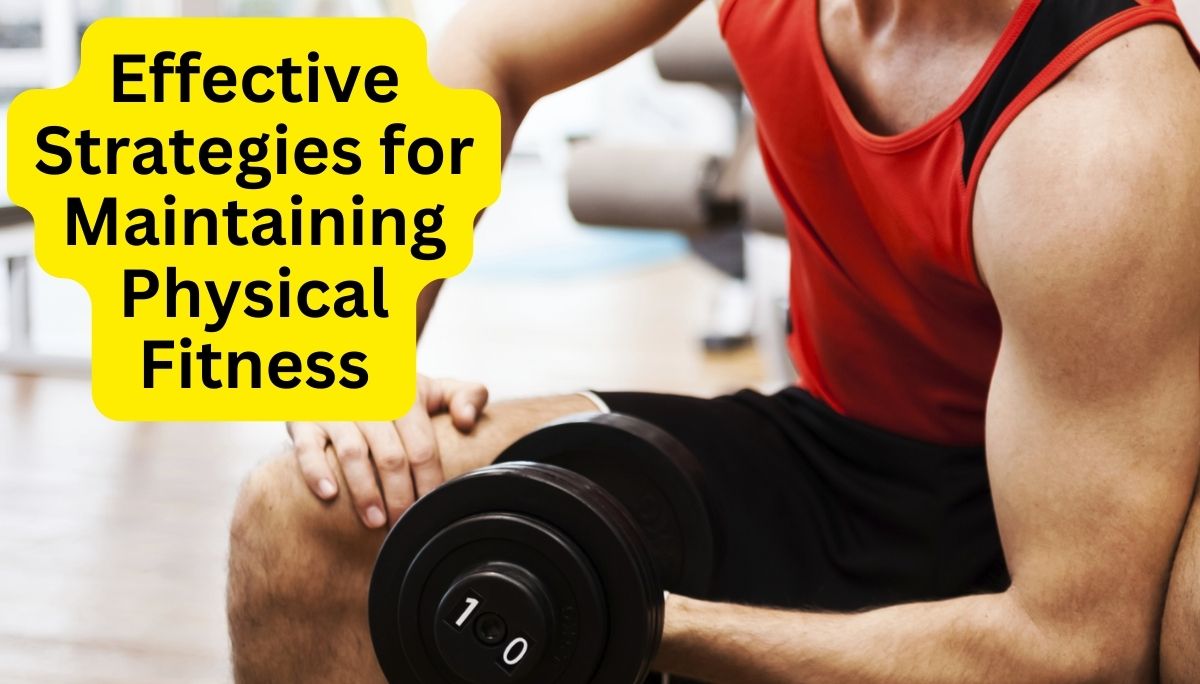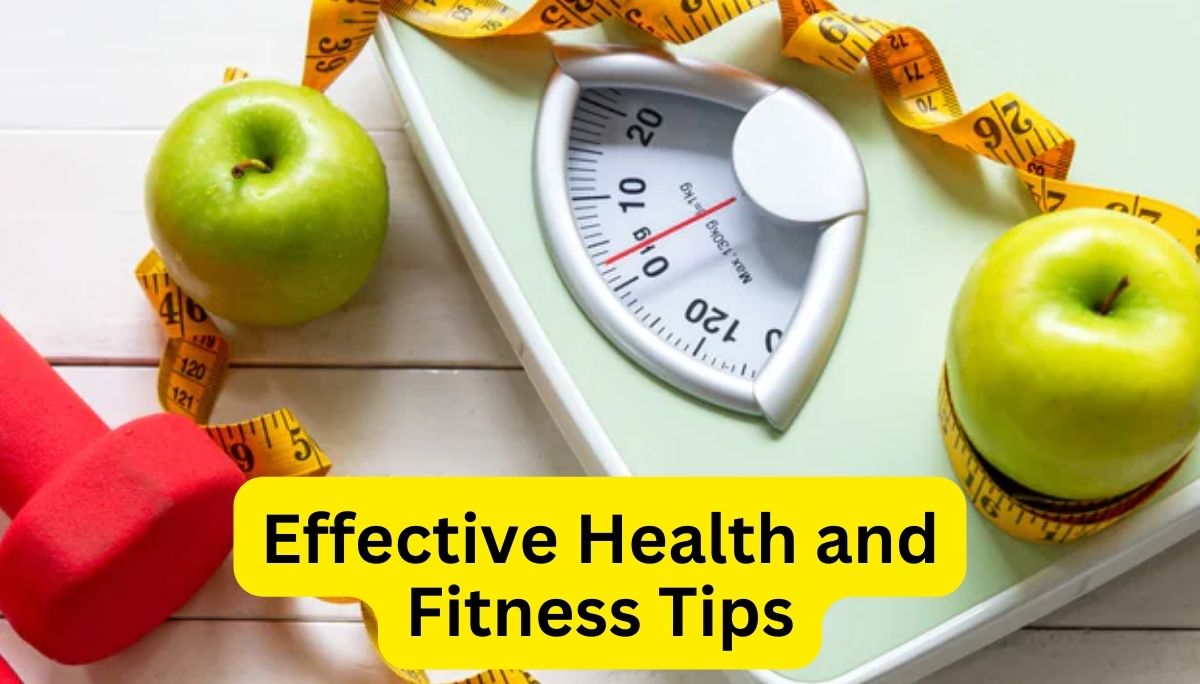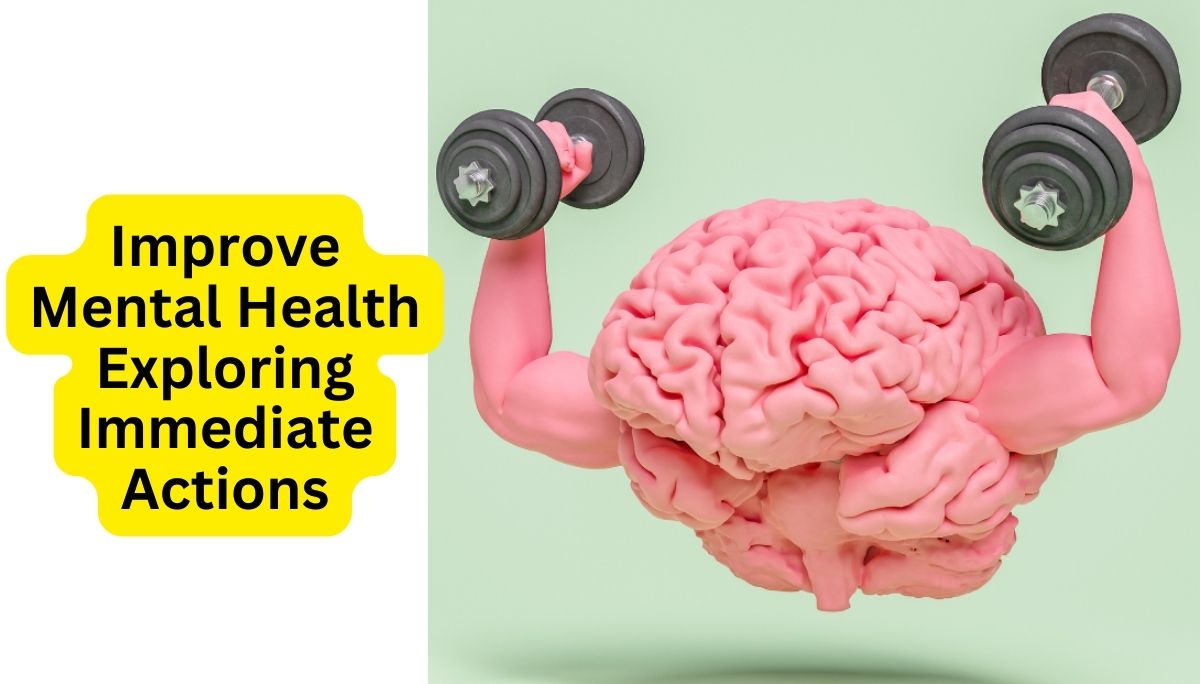Effective Strategies for Maintaining Physical Fitness and Well-Being – Discover the Mystery
In today’s fast-paced world, staying physically fit is essential for overall health and well-being. But with so many conflicting messages and fad diets, it can be challenging to know where to start. Fear not! In this comprehensive guide, we’ll explore proven strategies and practical tips to help you stay physically fit and achieve your fitness goals.

Table of Contents
The Importance of Physical Fitness
In today’s fast-paced world, where sedentary lifestyles and unhealthy habits have become the norm, prioritizing physical fitness has never been more crucial. Staying physically fit is not just about achieving a certain aesthetic; it’s about fostering a holistic sense of well-being that permeates every aspect of our lives.
From boosting energy levels and improving sleep quality to reducing the risk of chronic diseases and enhancing mental health, the benefits of physical fitness are truly profound. By embracing a commitment to consistent exercise and healthy lifestyle choices, we can unlock a world of vitality and empowerment.
Building a Balanced Exercise Routine
The key to staying physically fit lies in creating a balanced and sustainable exercise routine that caters to your individual needs and preferences. A well-rounded approach should incorporate a combination of cardiovascular exercise, strength training, and flexibility work.
Cardiovascular activities, such as brisk walking, jogging, cycling, or swimming, are essential for improving heart health, boosting endurance, and burning calories. Aim for at least 150 minutes of moderate-intensity aerobic activity or 75 minutes of vigorous-intensity aerobic activity per week, as recommended by the Centers for Disease Control and Prevention.
Strength training, on the other hand, helps build lean muscle mass and increase bone density, both of which are crucial for maintaining a healthy metabolism and preventing age-related muscle loss. Incorporate resistance exercises, such as weightlifting, bodyweight exercises, or resistance band workouts, at least two days per week.
Finally, don’t overlook the importance of flexibility and mobility. Activities like yoga, Pilates, or stretching routines can improve range of motion, reduce the risk of injury, and promote overall body awareness and balance.
Fueling Your Body Right
Physical fitness is not solely about exercise; it’s also about nourishing your body with the right fuel. A balanced and nutrient-dense diet plays a crucial role in supporting your fitness goals and overall health.
Focus on consuming a variety of whole, unprocessed foods, such as lean proteins, fruits, vegetables, whole grains, and healthy fats. These nutrient-rich foods provide the energy, vitamins, and minerals necessary for optimal performance and recovery.
Additionally, stay hydrated by drinking plenty of water throughout the day. Proper hydration aids in muscle function, temperature regulation, and nutrient absorption, all of which are essential for physical fitness.
For a comprehensive guide on healthy eating, check out the USDA’s MyPlate recommendations.
Prioritizing Rest and Recovery
While exercise and proper nutrition are essential components of physical fitness, it’s equally important to prioritize rest and recovery. Overtraining and neglecting adequate rest can lead to burnout, injury, and decreased performance.
Aim for at least 7-9 hours of quality sleep each night, as sleep plays a crucial role in muscle repair, energy restoration, and overall physical and mental rejuvenation. Additionally, incorporate active recovery activities, such as light stretching, foam rolling, or low-impact exercise, to help reduce muscle soreness and promote optimal recovery.
Cultivating a Fitness Mindset
Staying physically fit is not just about adhering to a routine; it’s about cultivating a lifestyle and mindset that prioritizes your well-being. Embrace physical activity as a form of self-care, and focus on the intrinsic rewards of feeling stronger, more energized, and more resilient.
Surround yourself with a supportive community or find an accountability partner who can motivate and encourage you along your fitness journey. Celebrate your progress, no matter how small, and remember that consistency is key to long-term success.
Frequently Asked Questions: Effective Strategies for Maintaining Physical Fitness
Q: How can I stay motivated to exercise consistently?
A: Find activities you genuinely enjoy, set achievable goals, and celebrate your progress. Additionally, consider joining a fitness community or finding an accountability partner to keep you motivated and on track.
Q: Is it better to do multiple shorter workouts or one longer session?
A: Both approaches can be effective. Multiple shorter workouts can be more convenient and easier to fit into a busy schedule, while longer sessions may provide more intense calorie burn and muscle-building benefits. Ultimately, it depends on your personal preferences and schedule.
Q: Can I still achieve fitness goals without a gym membership?
A: Absolutely! There are numerous bodyweight exercises, outdoor activities, and at-home workouts that can be effective for staying physically fit. Investing in some basic equipment, like resistance bands or dumbbells, can also add variety to your home routine.
Q: How often should I switch up my exercise routine?
A: Variety is key to preventing plateaus and keeping your body challenged. Aim to change your routine every 4-6 weeks by introducing new exercises, adjusting intensity levels, or trying different workout formats.
Q: How often should I exercise to stay physically fit?
A: Aim for at least 150 minutes of moderate-intensity aerobic activity or 75 minutes of vigorous-intensity activity per week, along with muscle-strengthening exercises on two or more days per week.
Q: What is the best type of exercise for staying physically fit?
A: The best type of exercise is one that you enjoy and can sustain over the long term. Focus on a combination of aerobic, strength, flexibility, and balance exercises to achieve overall physical fitness.
Q: How important is nutrition for physical fitness?
A: Proper nutrition is essential for fueling your workouts, supporting muscle recovery, and maintaining overall health. Focus on eating a balanced diet rich in nutrient-dense foods to support your fitness goals.
Q: Can physical fitness help with mental health?
A: Yes, regular physical activity has been shown to improve mental well-being by reducing stress, anxiety, and depression, and boosting self-confidence and overall mood. Exercise releases endorphins, which are natural mood-boosting chemicals in the brain.
Staying physically fit is a journey that requires dedication, consistency, and a holistic approach. By combining regular exercise, proper nutrition, adequate rest, and a positive mindset, you can unlock a world of vitality and empowerment. Remember, physical fitness is not just about achieving a certain aesthetic; it’s about fostering a lifestyle that supports your overall well-being, allowing you to thrive in every aspect of your life.






